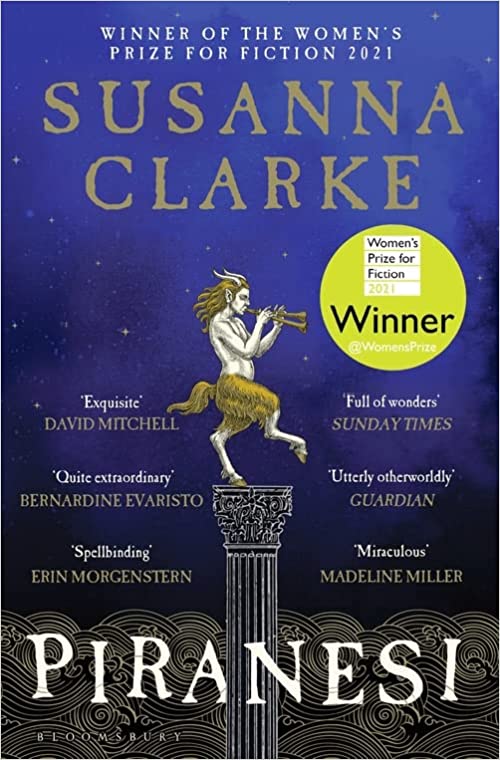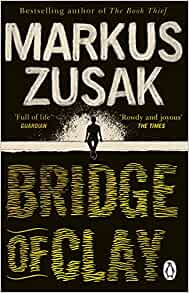
Our Wellbeing Reading Group met early in March to discuss our latest book- Piranesi by Susanna Clarke. Although the book was relatively short- less than 250 pages- It was one of the more unusual reads that we’ve tackled. This fantasy novel follows Piranesi, the titular character, through his notes and diary entries as he explores the place he lives which is called the House. The House is in a parallel universe and has infinite halls in its levels, filled with statues and an ocean on the lower level. Piranesi’s only human contact is with the Other, who visits to occasionally bring him supplies and to urge him to search for the “Great and Secret Knowledge” that resides somewhere in the House. We’re introduced to the mysterious 16 and the Prophet, and as Piranesi uncovers how he arrived in the House, we’re taken along to find out more about the mystery and more about the House.
The group found the novel interesting for the most part, although one or two felt it wasn’t their favourite of our reads. Quite a few of us found the start of the book very confusing- “I had to open the wine”, but we all felt that the need to know what had happened to Piranesi and how the story was going to be resolved carried us along into the second part of the novel. We were all sympathetic to Piranesi, describing him as child-like, but we also felt he was overly compliant, and questioned why he didn’t ask more questions of the Other. We talked about Stockholm Syndrome, where a prisoner develops trust and affection for their captor, and how living in the House had changed Piranesi’s personality. The Other cruelly names Piranesi after Giovanni Battista Piranesi who drew fictitious and detailed prisons. Find out more here- https://en.wikipedia.org/wiki/Giovanni_Battista_Piranesi The theme of being a captive in the House came up several times in our discussions.
We were impressed with the writing style, enjoying the author’s detailed descriptions of the House, all of which enabled us to picture Piranesi’s world in our minds. The House felt cold, draughty, damp, with no comfort, yet Piranesi has a deep attachment to it even at the end of the novel, finding comfort and peace there. We even found ourselves joining Piranesi in feeling sorry for the House and worrying about it being empty. In the vein of avoiding spoilers I won’t recount much of our discussions here, but we talked about motives, the juxtaposition of characters, how the book was resolved (or not), and what else we’d have liked to see in the book. One of our number would have liked the House to be the gateway to other worlds for example.
The ending was quick and not entirely satisfying, there were lots of unanswered questions and unravelled threads without a conclusion, however we were mostly happy with how things resolved for Piranesi (the character). Our conclusion was that we’d recommend the book, with a particular vote for listening to it being read, either by audiobook or for our one lucky group member, by a partner. To finish, here’s the take of one of our readers.
“I think I loved this book because there were so many unanswered questions, it could really let your mind wander. A real escapism book for me!”
Our next novel is Bridge of Clay by Markus Zusak. When we introduced the book, one of our readers told us about meeting the author at a literary festival- we were all suitably impressed! If you’d like to join in, please call by William Harvey Library to pick up a copy.
Find out more about our reading groups here
Take a look at the blog posts for our previous reads here.

